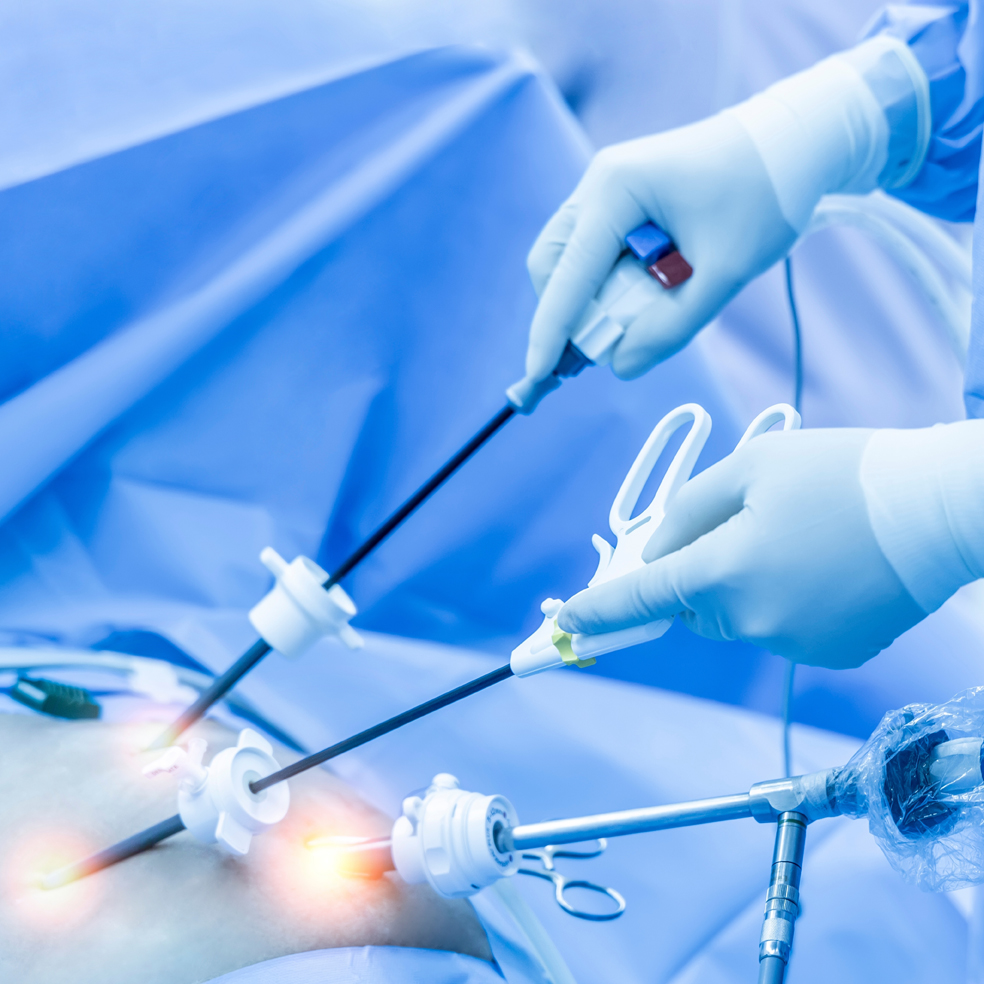At-A-Glance
- Today, the “best,” most effective antireflux surgery is done laparoscopically, with just a few mini-incisions; the procedure is called Laparoscopic Nissen Fundoplication.
- The stomach’s dome (fundus) is loosened, wrapped around the esophagus, and then sewn (plicated) in place to create a more robust lower esophageal sphincter (LES).
- All surgical procedures will fail in the face of poor dietary and lifestyle choices; surgery alone is not enough to fix reflux. For example, eating and drinking (alcohol) to near bedtime will do it.
- Other antireflux procedures are done endoscopically, that is, with long instruments going through your mouth; there are no incisions. Examples are Lynx and Stretta … but over time, it has become clear that these procedures usually fail
Join Facebook Live with Dr. Koufman, Noon EDST 1st Wednesday of the Month. If You Miss It Live, See It On YouTube Afterwards.
This post is about Laparoscopic (“Nissen”) Fundoplication … the name of the procedure describes what is done. The fundus, the dome of the stomach, is loosened up and then wrapped and sewn (plicated) in place to create a robust new lower esophageal high-pressure zone. Nissen was the surgeon who popularized the technique
Meanwhile, there are other endoscopic procedures performed through the mouth. However, I don’t recommend rinks, Lynx, or stinks procedures, nor do I recommend stiff, Tiff, or whiff procedures… not fetter, Stretta, or meta, either. None of the lesser endoscopic procedures are particularly effective.
Who Should Have Surgery?
Traditionally gastroenterologists have recommended surgery for patients who failed proton pump inhibitor (PPI) treatment. In my opinion, that indication is laughable as that means those patients were unwilling to make dietary and lifestyle changes that were needed. PPI failures are the worst at non-surgical recommendations. Also, remember that long-term use of PPIs increases the risk of esophageal cancer. PPI failure should NOT be an indication for surgery.
Surgery, especially “last-resort” surgery, is always controversial. Even the idea of “last resort“ is misleading, because, in my opinion, it is not a “last resort,” but rather, a particular treatment that should be recommended for a particular group of patients for particular problems. I recommend surgery for non-smokers who develop throat and lung cancers, and for patients with severe life-altering symptoms; see Chronic Bronchitis.
In addition, I recommend surgery for patients who are able to control their reflux, but whose lower esophageal sphincter function remains poor … despite best efforts. Again, I also recommend surgery for patients who have terrifying and/or life-threatening consequences of reflux.
Why Does Surgery Fail?
A 70-year-old woman who did well on my anti-reflux program was examined by TNE (transnasal esophagoscopy and she was found to have no functioning lower esophageal sphincter. Surgery was performed. Five years later, she consulted me with terrible reflux, including chronic throat-clearing, cough, laryngitis, globus, and dysphasia. She ate dinner at 8 o’clock and went to bed at 10 o’clock in the evening. Under those circumstances, it would expected that the patient would reflux all night every night, SNoRR.
What happens is that the surgical wrap gets stiff, swollen, and non-functional, just like the original valve. Indeed a Reflux Detox program is needed followed by a reasonable long-term anti-reflux program to reestablish normalcy. Most surgical failures are not because the surgery breaks down or the wrap falls apart. In other words, when people have reflux after fundoplication, it’s usually not because the surgery fails, but rather because of poor diet and lifestyle choices.
I recommend surgery for patients who have no lower esophageal sphincter function, even after a anti-reflux program effectively gives symptom relief; and I recommended it for patients with severe or life-threatening reflux-related diseases, including non-smokers with throat and lung cancer.
Which Surgeon, and Partial or Complete 360o Fundoplication?
If you have respiratory Reflux, make sure that your surgeon is going to do a complete 360° fundoplication wrap, as partial wraps in people with respiratory reflux fail.
In addition, make sure your surgeon is experienced. Ask her/him how many cases s/he’s done. It is my belief, based upon conversations with surgical colleagues, that the learning curve for laparoscopic fundoplication is 200 cases. This is not a procedure for the casual operator
Final Thought
Antireflux surgery should be recommended rarely … and even the best surgery by the best surgeon will fail if you still have poor lifestyle and dietary habits
Subscribe to this blog (see below) to stay current; if you would like to schedule a virtual consultation with me, you can Book It Online.










